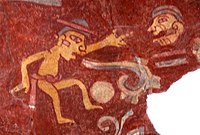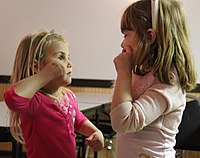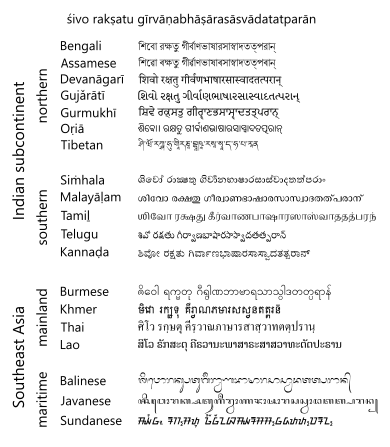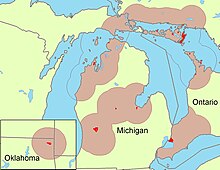Portal:Language
Introduction



Estimates of the number of human languages in the world vary between 5,000 and 7,000. Precise estimates depend on an arbitrary distinction (dichotomy) established between languages and dialects. Natural languages are spoken, signed, or both; however, any language can be encoded into secondary media using auditory, visual, or tactile stimuli – for example, writing, whistling, signing, or braille. In other words, human language is modality-independent, but written or signed language is the way to inscribe or encode the natural human speech or gestures.
Depending on
The scientific study of language is called
Selected language -

Did you know (auto-generated)

- ... that Native American legends?
- ... that the Gujarati poem "Shav Vahini Ganga" criticises the Indian government's handling of the COVID-19 pandemic?
- ... that the parliamentary sign-language interpreter could not make out what South African MP Joan Fubbs tried to say in her tribute to President Cyril Ramaphosa?
- ... that Arithmetic was the first mathematics text book written in the Russian language?
- ... that American educator Gilbert Eastman, who acted in and wrote American Sign Language plays, won an Emmy Award in 1993?
- ... that Daniel Klein's Grammatica Litvanica, the first printed grammar of the Lithuanian language, introduced the distinctive Lithuanian letter Ė?
More did you know -
- ...that we know about ?
- ...that virtually all Italian-speakers in Albania have learnt the language by watching Italian television and not through reading textbooks?
- ...that the indigenous Nambikwara language of Brazil has a special implosive consonant used only by elderly people?
- ...that Venice, Italy, is not a dialect of Italian?
Categories
Linguistics: Computational linguistics • Grammar • Historical linguistics • Morphology • Phonetics • Phonology • Pragmatics • Reading • Semantics • Sociolinguistics • Syntax • Writing
Languages: Language families • Pidgins and creoles • Sign languages
Linguists: By nationality • Historical linguists • Morphologists • Phoneticians • Phonologists • Sociolinguists • Syntacticians • Translators
Stubs: Constructed languages • Languages • Linguists • Pidgins and creoles • Typography • Vocabulary and usage • Writing systems
Full Language category tree
|
|---|
|
Select [►] to view subcategories
|
Related portals
Selected topic -
Selected picture -

The Rosetta Stone is an ancient Egyptian granodiorite stele inscribed with a decree issued at Memphis in 196 BC on behalf of King Ptolemy V. The decree appears in three scripts: the upper text is Ancient Egyptian hieroglyphs, the middle portion Demotic script, and the lowest Ancient Greek.
Language News
- 1 January 2024 – Public Domain Day
- The animated short film Steamboat Willie, the German-language version of the novel All Quiet on the Western Front, and other works published in 1928 enter the public domain in the United States. (Mashable)
Topics

Languages of Africa:
Languages of the Americas:
Languages of Asia:
Languages of Austronesia:
Languages of Europe:
Constructed languages:

See also: List of linguists

Other writing systems:
See also: History of the alphabet, Script
Associated Wikimedia
The following Wikimedia Foundation sister projects provide more on this subject:
-
Commons
Free media repository -
Wikibooks
Free textbooks and manuals -
Wikidata
Free knowledge base -
Wikinews
Free-content news -
Wikiquote
Collection of quotations -
Wikisource
Free-content library -
Wikiversity
Free learning tools -
Wiktionary
Dictionary and thesaurus
Find a language
| Enter an ISO 639 code to find the corresponding language article |






















